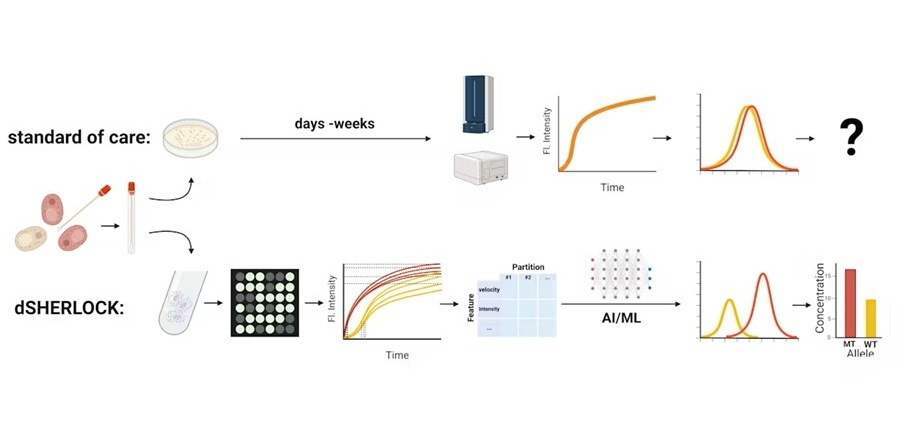Rapid Virological Response Predicts Patients Prognosis
By LabMedica International staff writers
Posted on 26 Jul 2011
Rapid virological response (RVR) is now considered the strongest predictor of sustained prognosis in patients with Hepatitis C (HCV) undergoing antiviral treatment. Posted on 26 Jul 2011
The HCV ribonucleic acid (RNA) can be quantified and antibodies to HCV and genotyping can all be used to follow the sustained virological response (SVR) of patients who have persistently normal alanine aminotransferase (ALT) levels.
In a multicenter study carried out in Italy, scientists assessed whether RVR might be predictive of SVR also in a particular subset of patients with HCV, and to evaluate the cost effectiveness to determine HCV RNA at four weeks in these subjects. A total of 137 patients with persistently normal ALT were treated appropriately, and their response to the drug therapy was measured.
Antibodies to HCV were tested by an enzyme-linked immunosorbent assay (ELISA III); HCV RNA quantification was obtained using a polymerase chain reaction (PCR)-based commercially available test; and genotyping was performed using a commercial kit (INNO-LiPA HCV II). Aminotransferases and other serum liver function tests were determined by routine methods in the local laboratory. The upper limit of normal ALT value was 40 IU/L. Liver biopsy specimens obtained within six months before study onset were evaluated using the Metavir classification. Formalin-fixed, paraffin-embedded specimens were routinely stained with hematoxylin–eosin and reviewed by local pathologists blinded to clinical and biochemical data.
RVR was observed in 68% of the patients, 42% patients with HCV-1, 90% with HCV-2, and 64% with HCV-3. An end-of-treatment response was observed in 86% of the patients, 68% of those with HCV-1, all the patients with HCV-2, and 91% with HCV-3. SVR was maintained 46% of the HCV-1 patients, 97% from the HCV-2 group, and 82% with HCV-3. Overall, 92% patients with rapid response did obtain HCV eradication versus only 38% of those without rapid response. HCV-1 patients with baseline HCV RNA less than 400 × 103 IU/mL as measured by PCR-based commercially available test (Cobas Amplicor HCV Monitor v 2.0; Roche Molecular Systems; Basel, Switzerland), were more likely to achieve RVR and SVR than those with higher HCV RNA levels.
The ELISA III test used was a product of Ortho Diagnostic System (Raritan, NJ, USA), and the HCV genotyping was performed using the commercial kit INNO-LiPA HCV II from Innogenetics (Ghent, Belgium). The authors concluded that those patients with HCV genotype 1 and normal ALT and reached HCV RNA negativity at week four, might have excellent probability to eradicate their infection. The study was published in June 2011, in the Journal of Viral Hepatitis.
Related Links:
Roche Molecular Systems
Ortho Diagnostic System
Innogenetics













